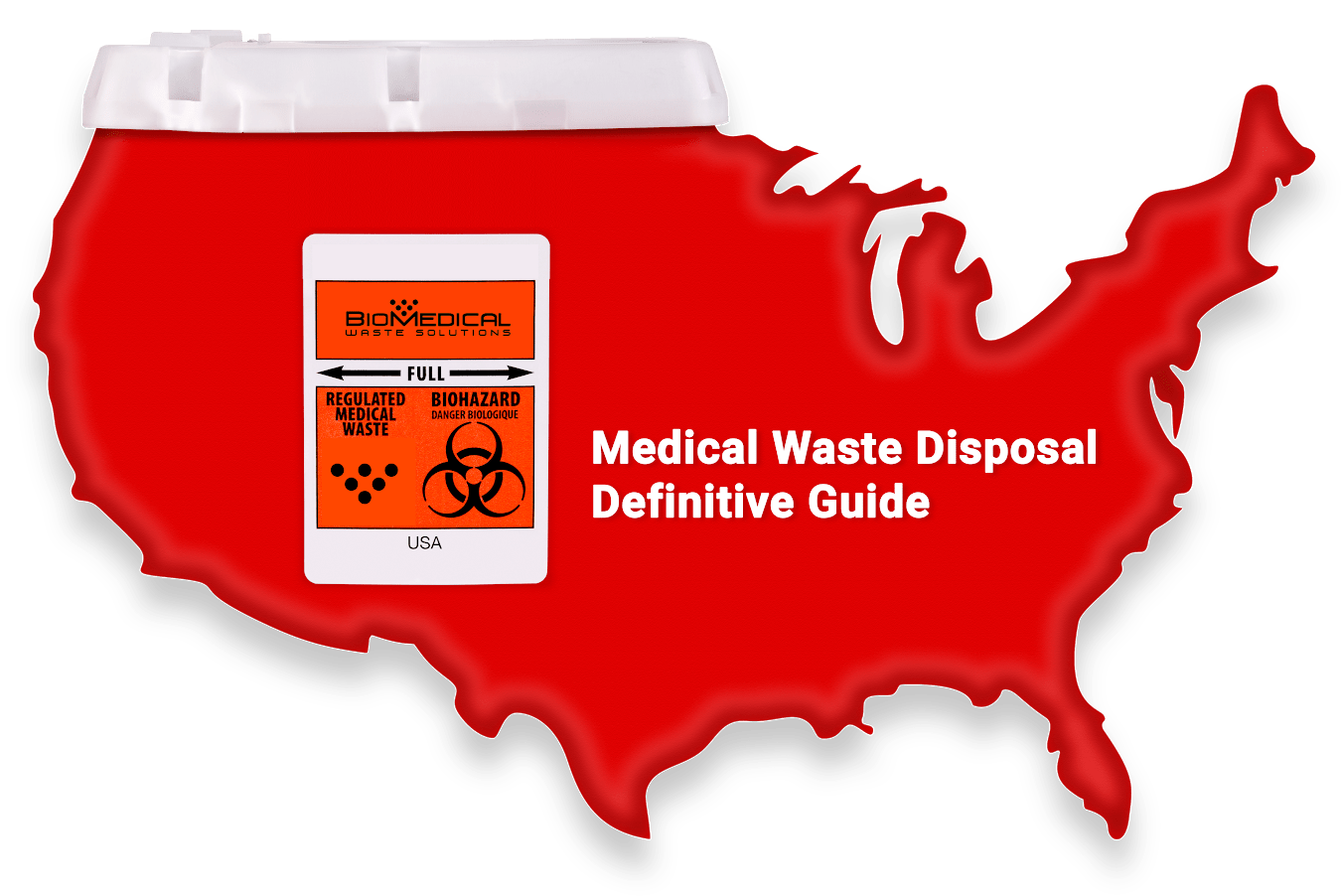Healthcare Health Heroes: The Unsung Duty of Medical Waste Removal Service
Healthcare Health Heroes: The Unsung Duty of Medical Waste Removal Service
Blog Article
The Importance of Appropriate Waste Disposal Practices
From the repercussions of incorrect waste disposal on our atmosphere to the long-lasting ramifications for future generations, the value of embracing lasting waste administration methods can not be overemphasized. By discovering the environmental effect of careless waste disposal, the advantages of reusing efforts, and the significance of area interaction in waste reduction initiatives, a deeper understanding of why correct waste disposal practices are critical arises.
Ecological Influence of Improper Disposal
Improper disposal of waste presents a substantial risk to the atmosphere due to its destructive impacts on ecosystems and human health and wellness. When waste is not correctly taken care of, it can cause contamination of the water, dirt, and air, triggering harm to different plant and animal species. click here. Chemicals and toxic substances from incorrectly disposed waste can permeate right into the ground, contaminating groundwater resources and influencing the health of both wildlife and human beings
Furthermore, the build-up of waste in landfills produces greenhouse gases like methane, adding to climate adjustment and international warming. Incorrect disposal techniques also lead to littering, which not just weakens the aesthetic value of the atmosphere however can also damage wildlife with ingestion or complexity.
To alleviate these environmental effects, it is essential for individuals and communities to take on appropriate waste disposal methods such as recycling, composting, and responsible contaminated materials disposal. By taking these actions, we can assist protect communities, maintain natural resources, and secure human wellness for future and existing generations.
Benefits of Recycling Programs
Consistently getting involved in recycling programs supplies various advantages for both the setting and culture all at once. One of the essential benefits of recycling is the preservation of all-natural resources. By reusing materials such as paper, plastic, glass, and steel, less resources need to be drawn out from the planet, causing lowered logging, mining, and boring tasks. This preservation of resources not just aids in maintaining eco-friendly balance however additionally adds to sustainable development.
In addition, reusing plays a critical role in decreasing power intake and greenhouse gas exhausts. The production of products from recycled materials typically calls for less energy contrasted to producing from virgin sources - medical waste disposal. Consequently, the carbon impact related to the manufacturing process is considerably decreased, helping in the battle versus environment modification
In addition, recycling programs develop work opportunities in the recycling industry, promoting financial development and social welfare. By motivating the recycling and reuse of materials, these programs sustain a circular economy that decreases waste generation and makes the most of source efficiency, ultimately bring about a cleaner, greener future for generations to come.
Contaminated Materials Monitoring Guidelines
Carrying out efficient harmful waste management guidelines is vital for lessening environmental and health threats connected with the inappropriate disposal of hazardous products - click here. Proper handling, treatment, and disposal of contaminated materials are vital to stop contamination of dirt, water resources, and air
One secret guideline is appropriate labeling of contaminated materials containers to guarantee secure handling and transport. Furthermore, facilities need to follow strict storage requirements to avoid leakages, spills, or mishaps that could endanger human health and the atmosphere. Regular training programs for staff members on contaminated materials monitoring methods are likewise vital to ensure compliance with regulations and promote a society of safety.
Additionally, dangerous waste needs to be segregated based upon its buildings to stop chain reactions that might lead to harmful situations. Implementing a thorough waste tracking system can aid keep an eye on the movement of harmful products from generation to disposal, guaranteeing openness and accountability. By following these guidelines carefully, industries and companies can add to a more secure and cleaner setting for future and existing generations.
Community Participation in Waste Decrease
To effectively deal with the environmental and wellness dangers connected with contaminated materials management, involving the area in waste reduction campaigns is critical. go to these guys Area involvement plays a crucial role in promoting sustainable waste management techniques and fostering a society of ecological responsibility. By informing locals about appropriate waste partition, reusing, and composting strategies, neighborhoods can significantly reduce the amount of waste sent to landfills, thus lessening environmental pollution and conserving all-natural resources.
Neighborhood participation in waste reduction programs additionally assists in elevating awareness about the importance of waste minimization and urges people to embrace eco-friendly habits in their daily lives - medical waste removal. Collective efforts between local authorities, waste monitoring companies, and neighborhood participants can result in the execution of reliable waste reduction strategies tailored to the details needs of each neighborhood or community
Moreover, neighborhood engagement cultivates a sense of ownership and accountability among citizens, encouraging them to take positive steps in the direction of reducing waste generation and promoting a cleaner, healthier environment for future and existing generations. By interacting in the direction of usual waste reduction objectives, communities can make a substantial effect on reducing the adverse impacts of inappropriate waste disposal methods.

Future of Sustainable Waste Practices
The development of lasting waste techniques is vital for progressing environmental stewardship and resource conservation in the coming years. As the worldwide populace remains to grow, so does the quantity of waste produced (medical waste removal). Typical garbage disposal approaches, such as landfilling and incineration, are no more sustainable in the long-term as a result of their considerable environmental impacts. Progressing, the future of lasting waste methods lies in embracing a round economy strategy, where resources are reused, recycled, or repurposed to minimize waste generation.
Technological advancements play an essential function in shaping the future of lasting waste methods. Advanced waste sorting and reusing modern technologies can aid improve the efficiency of waste management procedures, permitting the healing of useful resources from waste streams. In addition, the adoption of biodegradable products and composting techniques can help in reducing the amount of organic waste winding up in landfills, thus reducing greenhouse gas emissions.
In addition, promoting customer understanding and education and learning on proper waste segregation and disposal techniques is essential for driving behavioral change towards sustainability. By fostering a culture of waste recycling, reduction, and reuse, areas can collectively add to a cleaner and much healthier setting for future generations.

Verdict
To conclude, proper waste disposal practices are important for minimizing environmental impact and promoting sustainability. By executing reusing programs, handling contaminated materials effectively, and encouraging neighborhood involvement in waste decrease initiatives, we can function in the direction of a cleaner and much healthier atmosphere. It is vital for individuals, businesses, and governments to focus on sustainable waste practices for the future well-being of our earth.

From the consequences of inappropriate waste disposal on our atmosphere to the lasting ramifications for future generations, the value of adopting sustainable waste administration methods can not be overemphasized. By exploring the ecological effect of reckless waste disposal, the benefits of reusing campaigns, and the importance of neighborhood engagement in waste decrease efforts, a much deeper understanding of why proper waste disposal practices are critical emerges.
By enlightening residents about appropriate waste segregation, reusing, and composting strategies, areas can substantially lower the amount of waste sent out to landfills, thus decreasing ecological pollution and saving all-natural resources. (click here)
Moving onward, the future of sustainable waste methods exists in embracing a circular economy strategy, where resources are reused, reused, or repurposed to decrease waste generation.
Advanced waste sorting and reusing technologies can assist enhance the effectiveness of waste administration processes, allowing for the recuperation of valuable sources from waste streams.
Report this page